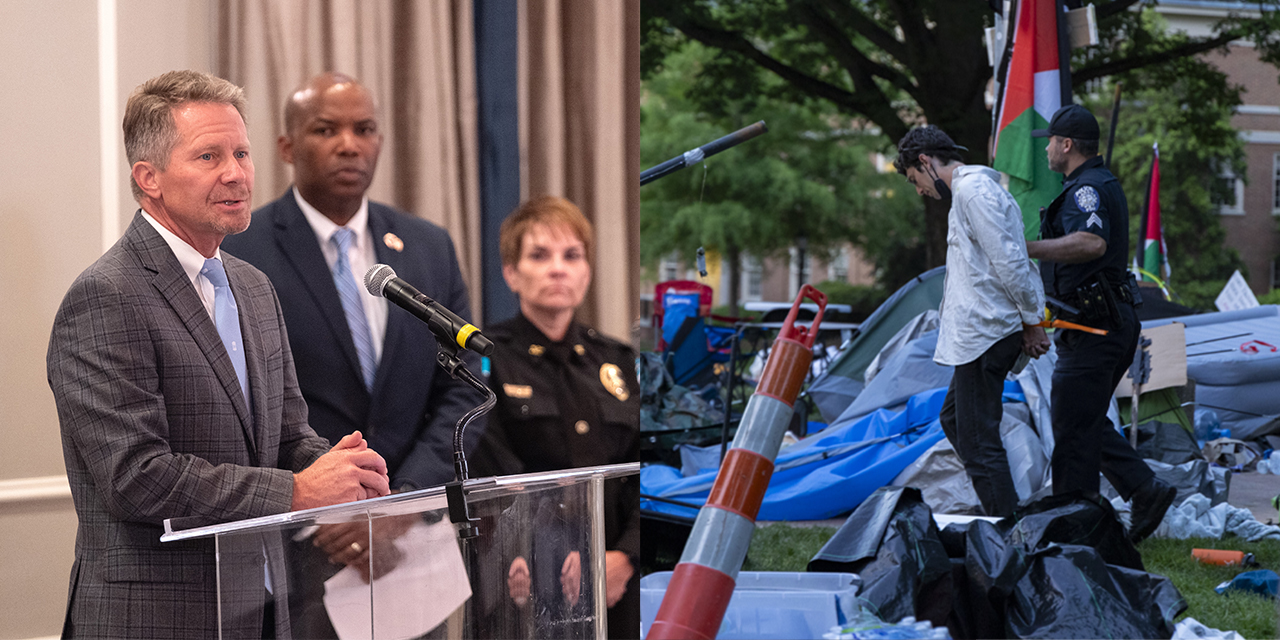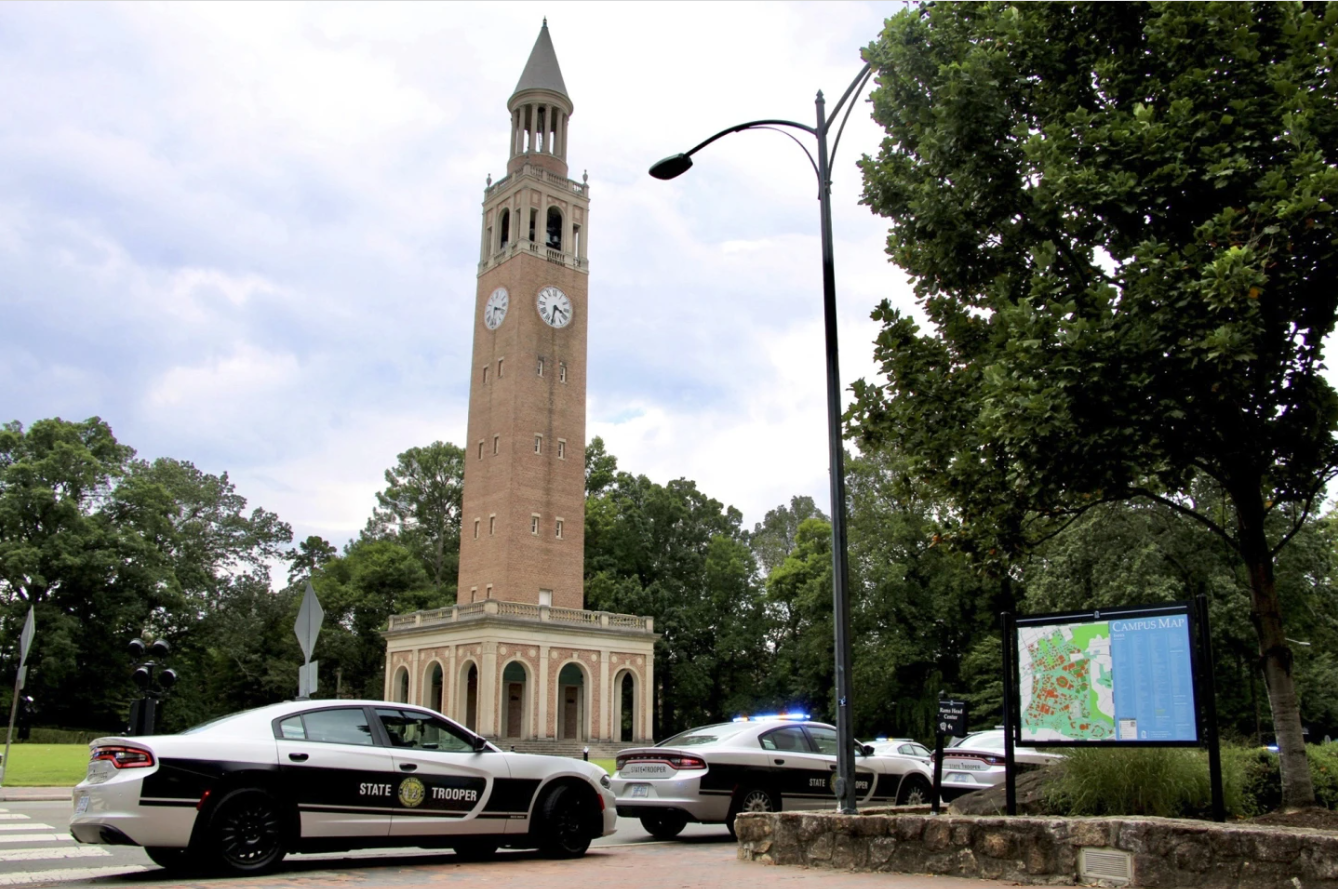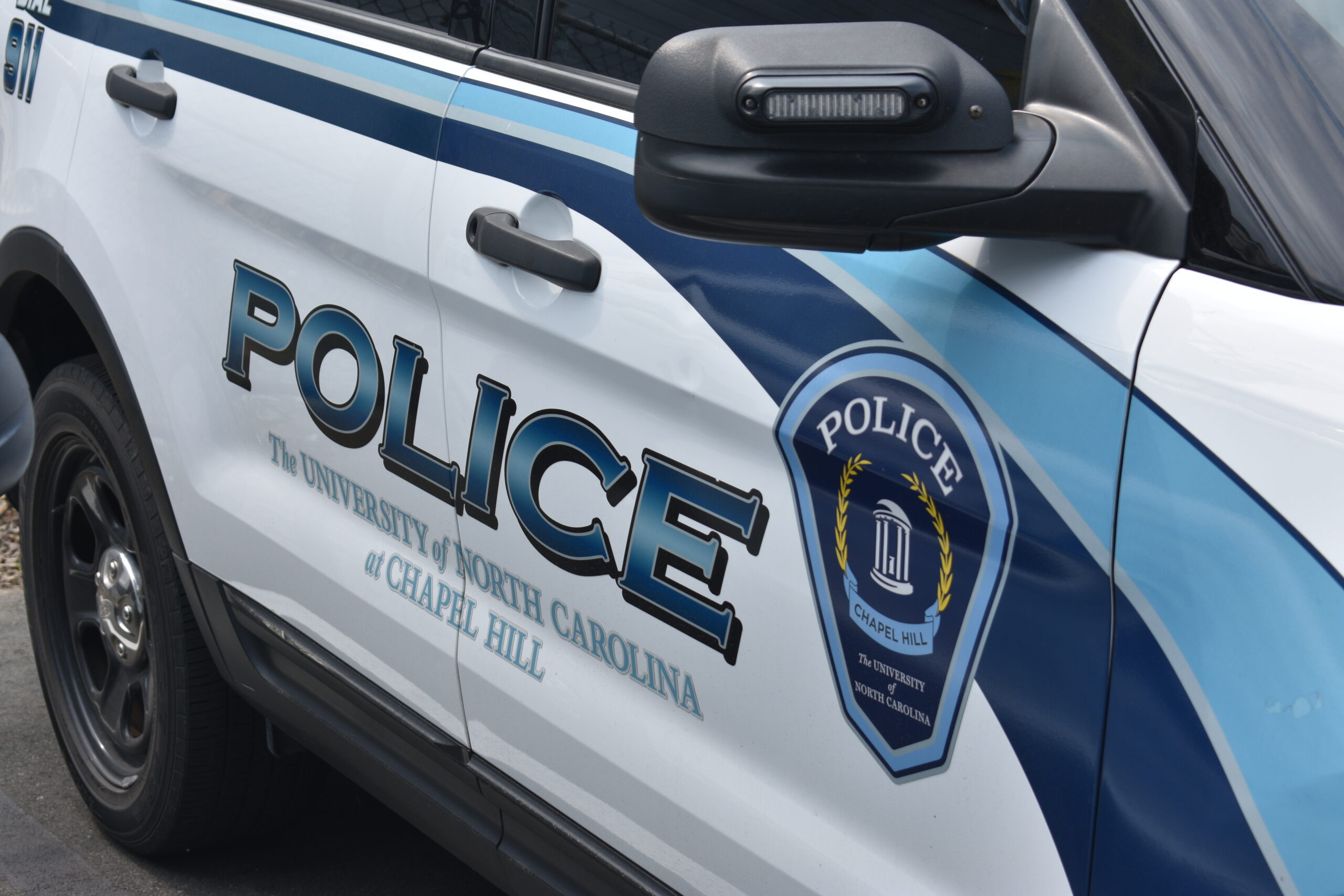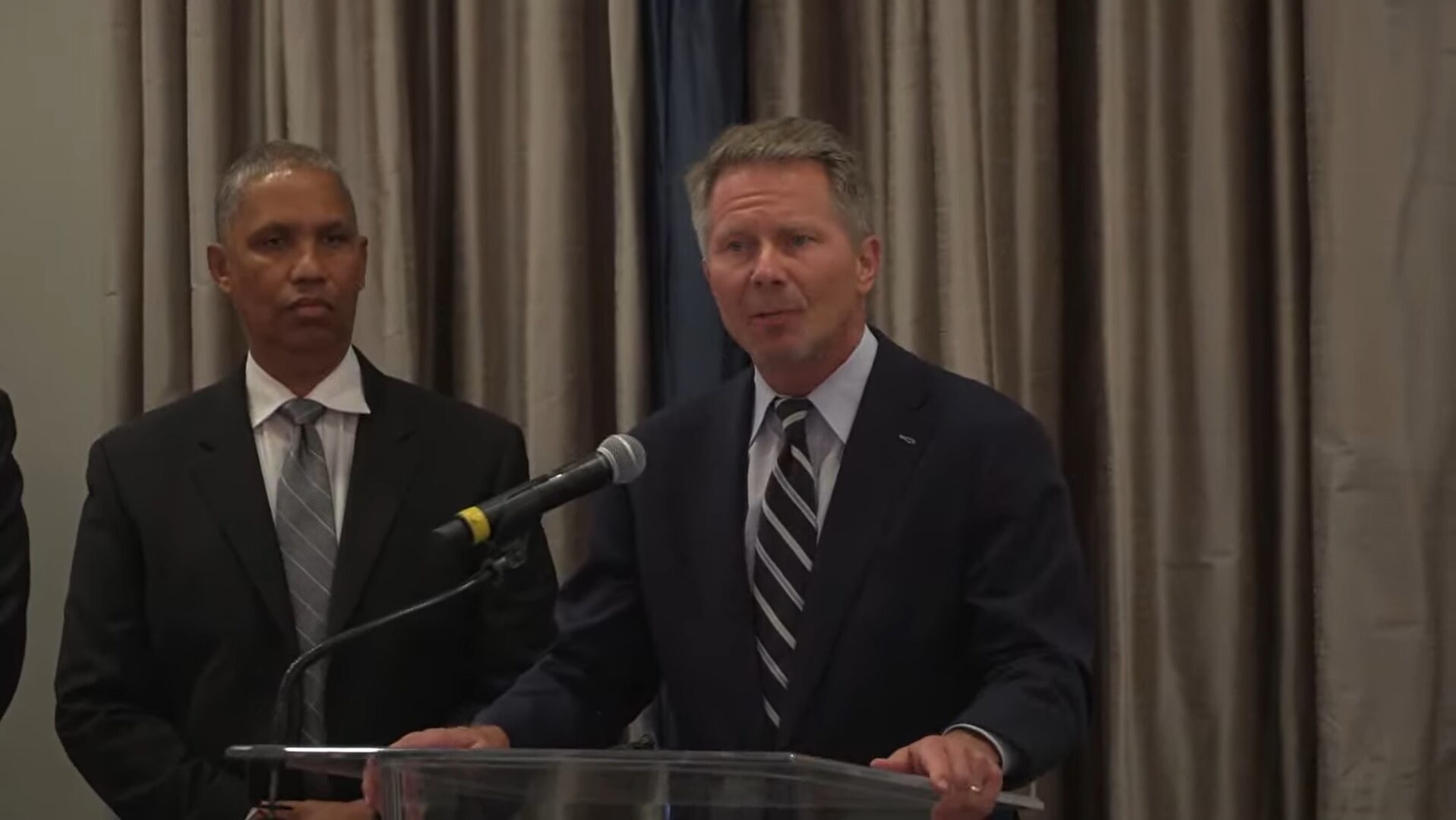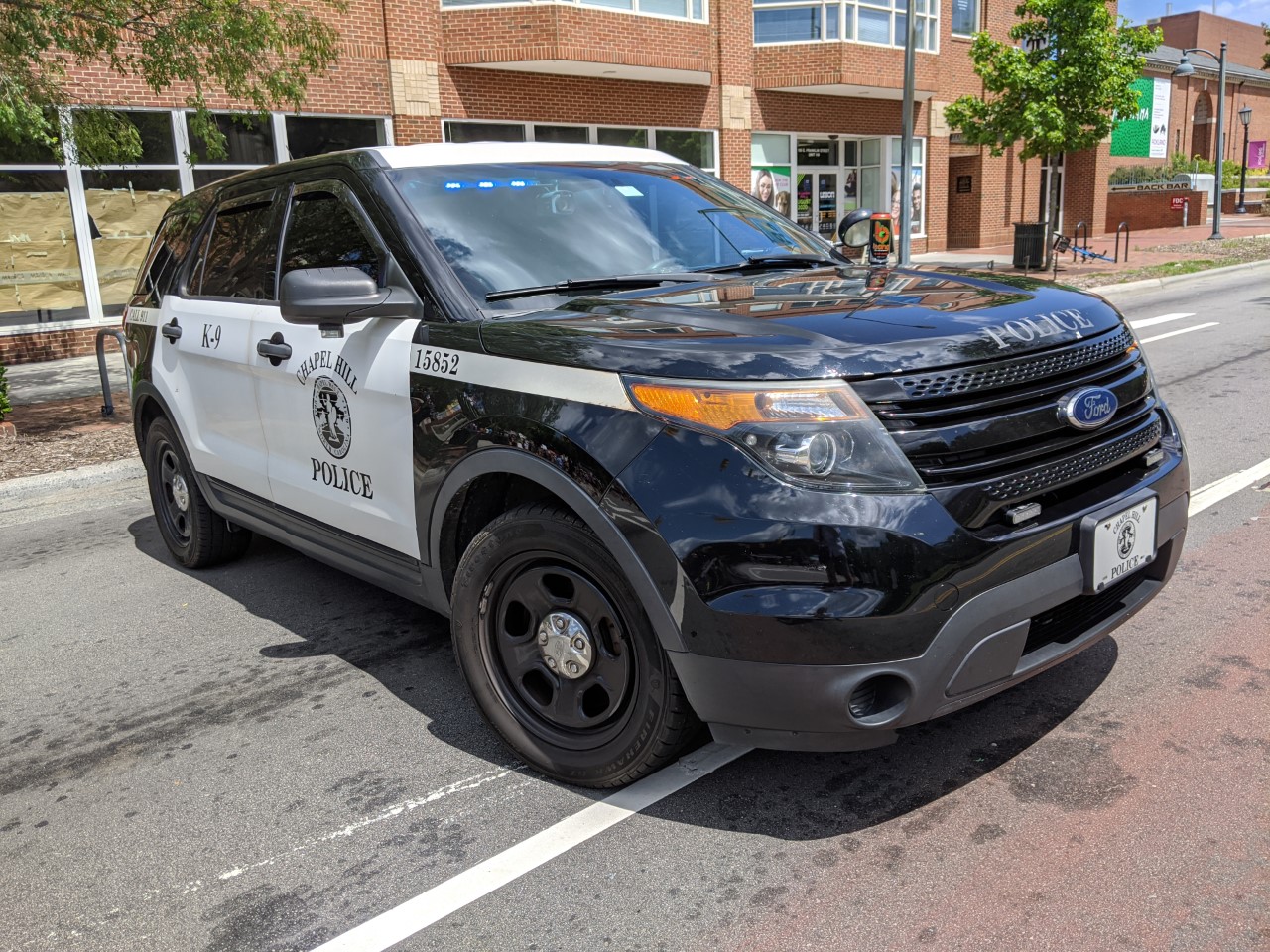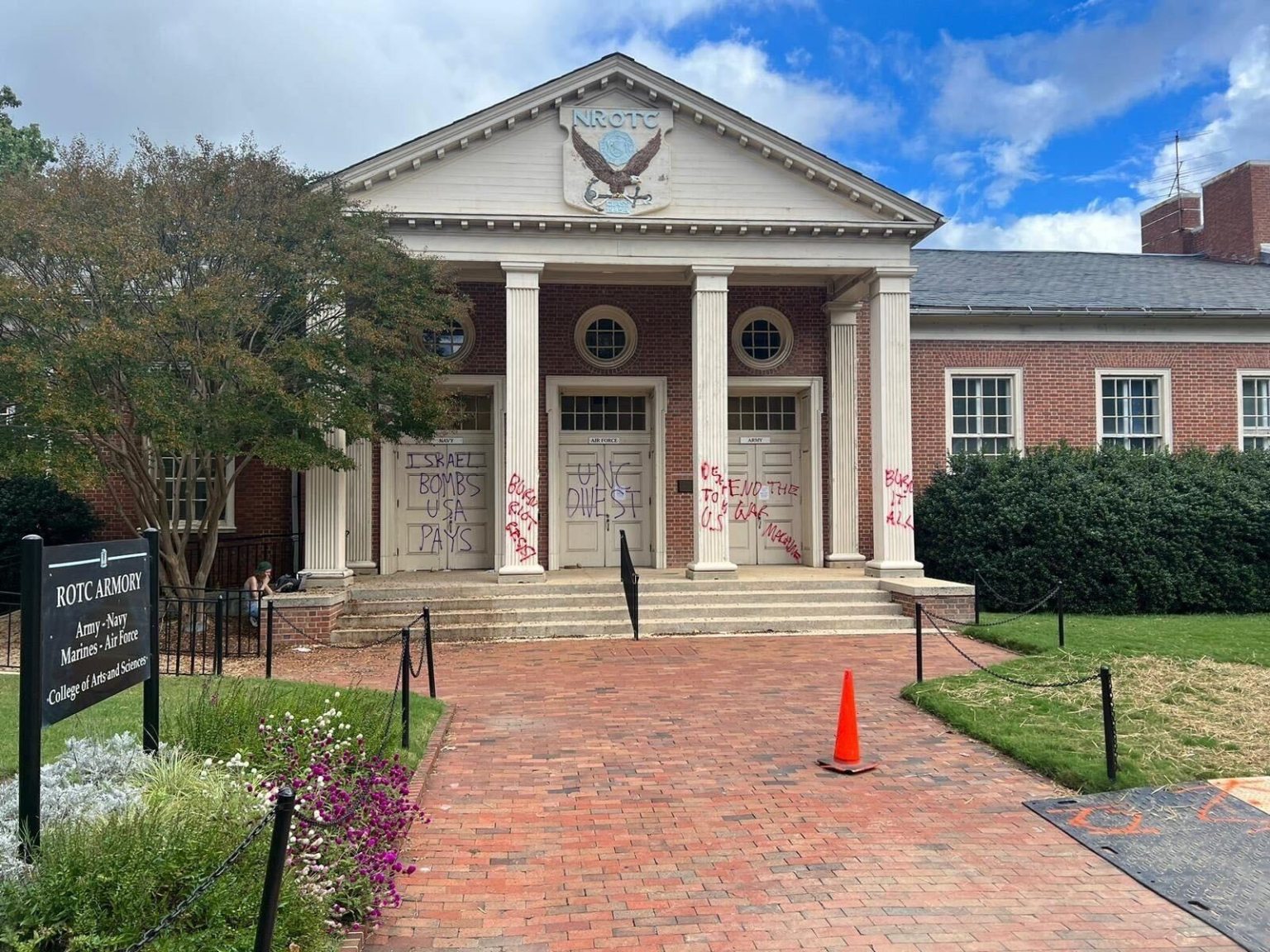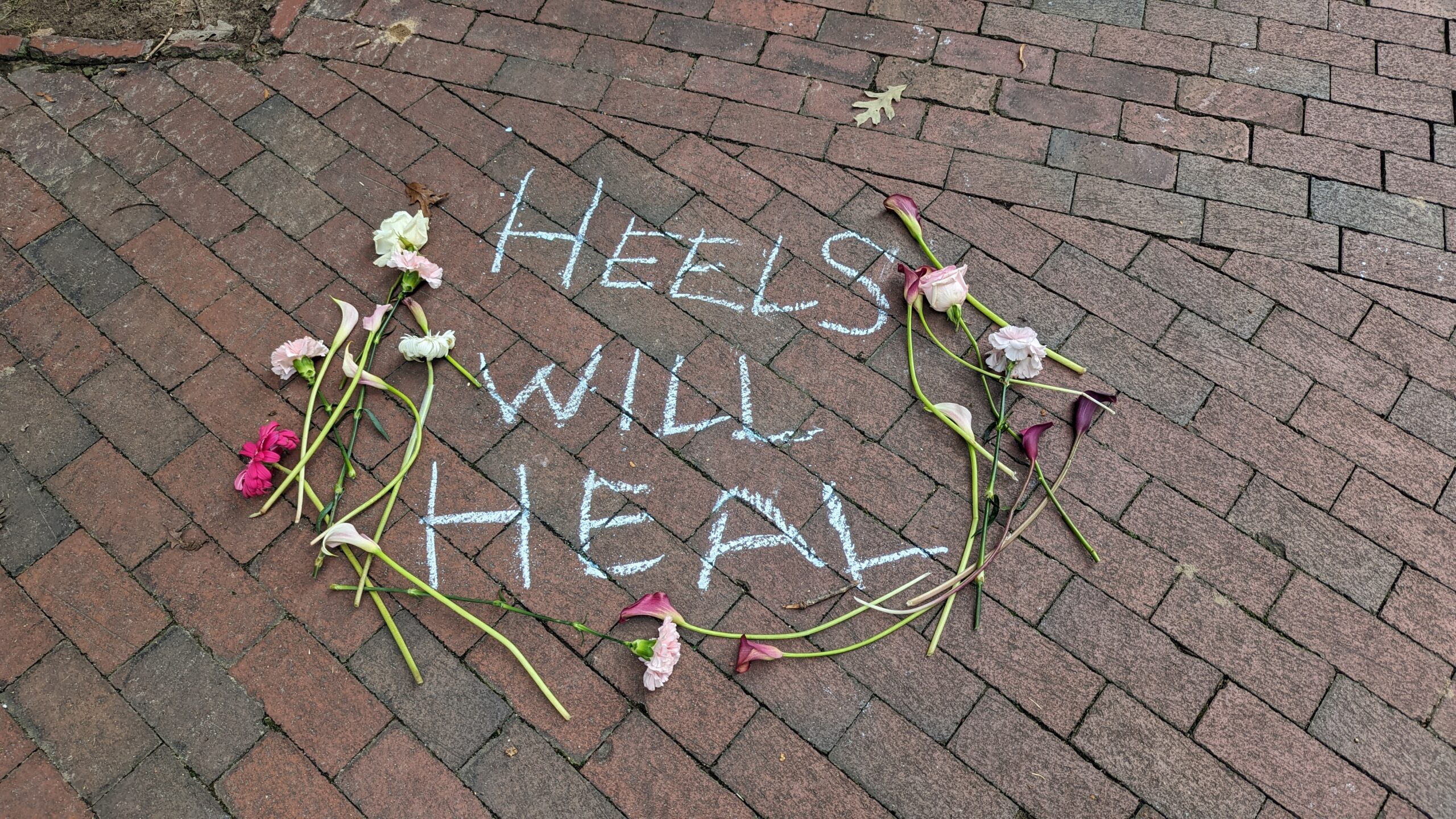For the Class of 2024 undergraduates set to celebrate their commencement this weekend, many of their college careers began in an unusual way thanks to the COVID-19 pandemic. At UNC, this group of seniors – along with the rest of the campus community – have seen their final year also impacted by some upheaval at the Chapel Hill university.
When the calendar turned to July 1 last year, UNC officials were planning on the upcoming fall semester – but also reacting to recent news from the Supreme Court. A nine-year case, featuring UNC as the representative for public universities in whether affirmative action in admissions violated the constitution, was resolved days prior with the justices ruling 6-3 against Carolina. The result meant UNC had to pivot and begin making changes to its admissions policies and nondiscrimination requirements – as well as explore how else the ruling might affect campus operations.
“When we received the Supreme Court’s decision, we immediately implemented our plan to ensure compliance,” said UNC Chancellor Kevin Guskiewicz during the July 27 Board of Trustees meeting. “We’re working with our information and technology officials to eliminate or redact applicant racial demographic checkbox data from the application materials that admissions officials review, changing our undergraduate application materials, our trainings and our guidance to prepare our people to review applications and make admissions decisions without consideration of race.”
In the wake of the ruling, Guskiewicz also announced a tuition support program his administration wanted to implement – where any incoming student from North Carolina could receive full tuition coverage if their parents’ make a combined income less than $80,000.
As the administration adjusted to those changes, students arrived for the new school year in August. But one week into classes, tragedy struck – as associate professor of applied physical sciences Zijie Yan was fatally shot in a campus laboratory building. Many people on campus sheltered in place for hours as the UNC community locked down, until authorities confirmed a suspect – graduate student Tailei Qi – was arrested two miles north in Chapel Hill.
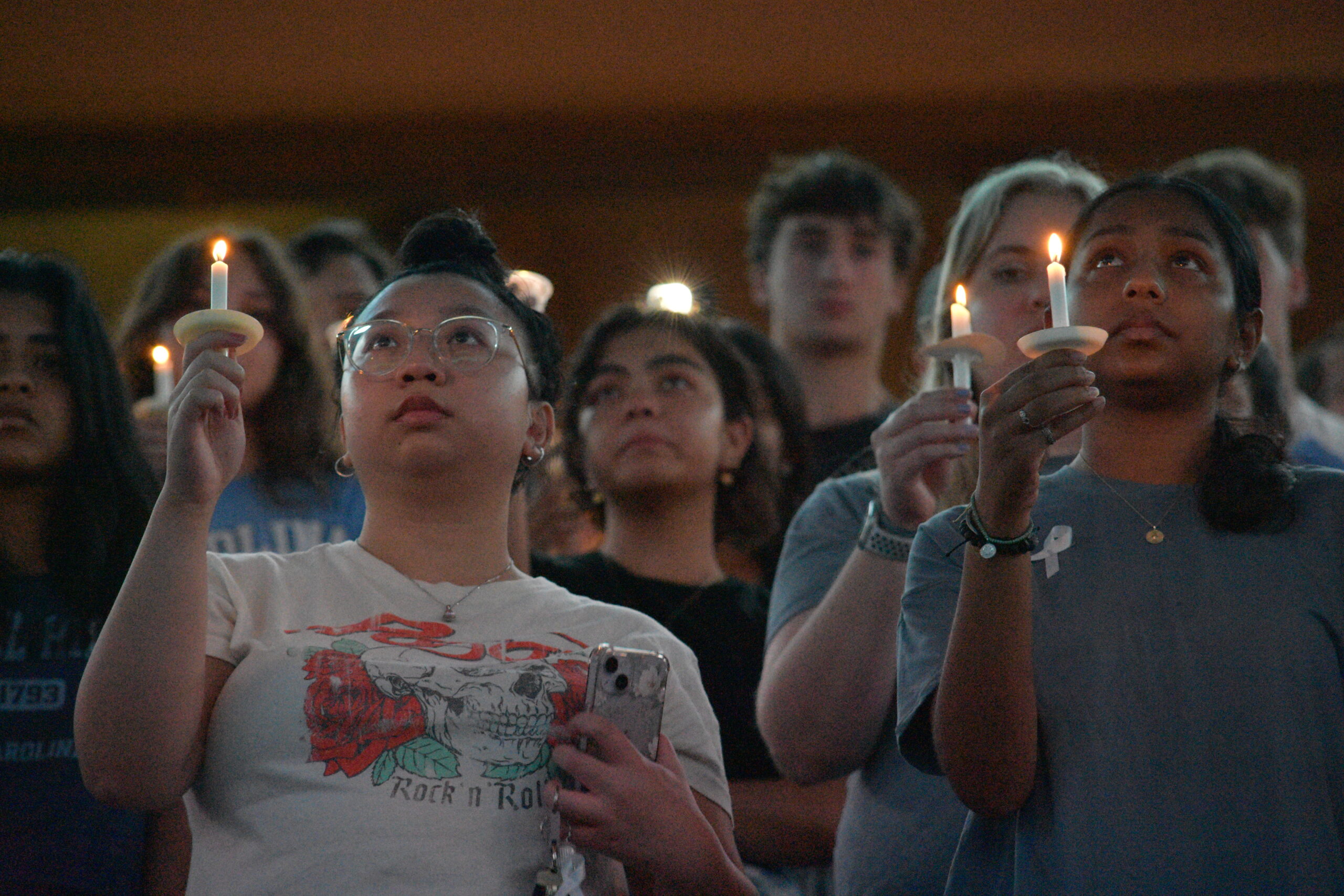
UNC students hold up their candles and look on as their peers perform the alma mater in honor of Zijie Yan during a vigil at the Dean E. Smith Center on August 30, 2023.
Another gun-related lockdown happened less than a month later, when someone brandished a gun in the student union during a dispute. While no one was injured and the suspect was apprehended off campus, it compounded concerns about campus security sparked by Yan’s death – which Guskiewicz tried to assuage.
“There’s nothing more important on our campus,” the chancellor said in August, “than the safety and wellbeing of our community members — certainly our nearly 30,000 students are at the top of that list, as well as our faculty and staff. We’re here for you, I’m pleading with you to use any of the resources that you may need, and we’ll come together as a community to ensure your safety and [that] of anyone who visits our campus here in Chapel Hill.”
That safety came into question later in the fall as well. After the October 7 attacks by Hamas on Israeli citizens – and the start of Israel’s military response – several students and faculty with ties to either side of the conflict shared concerns about feeling targeted or discriminated by the other. Guskiewicz and Provost Chris Clemens shared letters to the campus community in October and again in November, saying any kind of violence or hate speech – antisemitism, islamophobia and otherwise – would not be accepted at Carolina.
In November, attention shifted to UNC leadership for other reasons. A report from the Michigan State University student newspaper identified Guskiewicz as the lone available finalist in consideration for the East Lansing school’s presidency. After staying mum on any decision for a few weeks, Guskiewicz confirmed on December 8 he would be leaving Chapel Hill after nearly three decades – close to five of which he spent as chancellor. That same morning, he was officially hired at Michigan State.
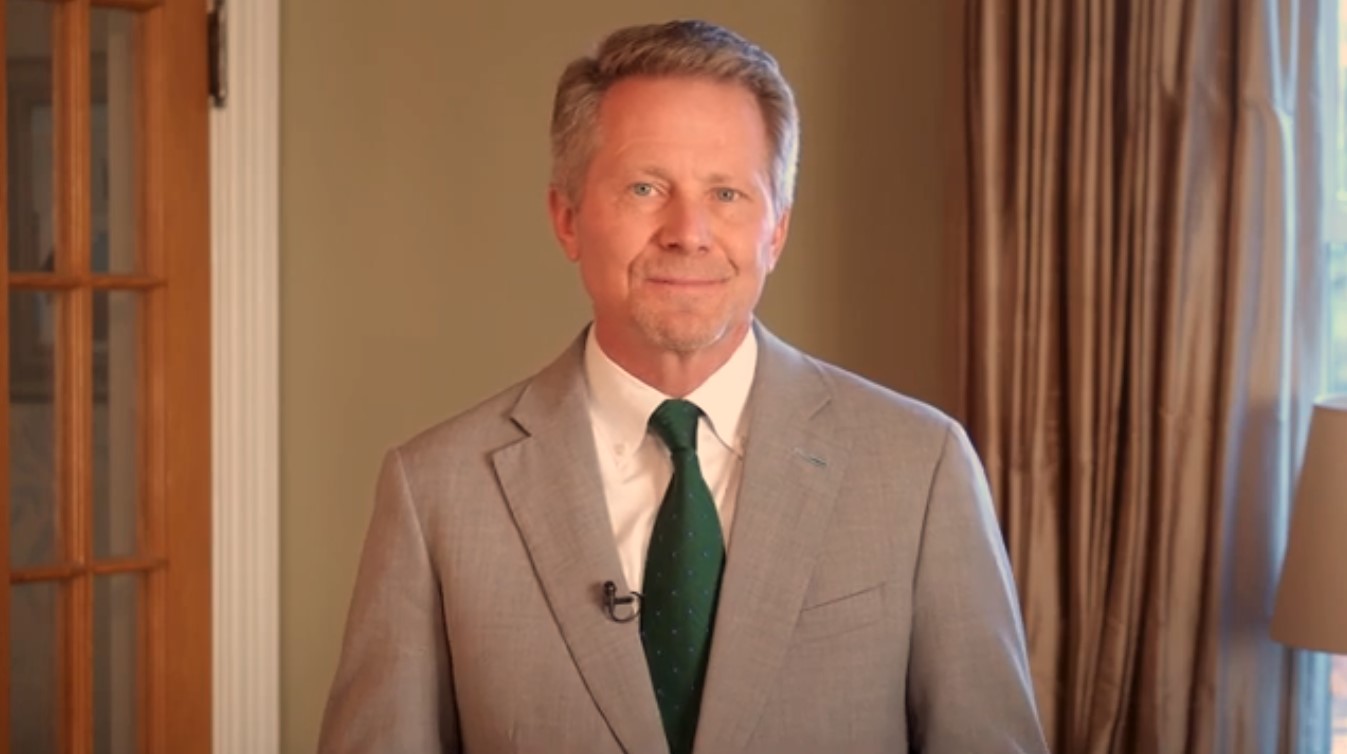
Kevin Guskiewicz speaks to the Michigan State community in his first video after being formally hired as the school’s president in December. (Photo via Michigan State University.)
“I pursued this opportunity because I believe that my values and vision align so well with those of Michigan State,” Guskiewicz said in his introduction video with the university, “and I share and admire your deep commitment to transforming lives through the power of teaching, research and outreach.”
One week later, UNC System President Peter Hans announced Lee Roberts as the interim selection for the flagship Chapel Hill university. Roberts – who was a UNC Board of Governors member and earned his degrees at Duke and Georgetown – came into his tenure by saying he hopes to follow the Hippocratic Oath of doing ‘no harm.’
“We need to make sure that everybody in this state – and, of course, more broadly – recognizes that this is an institution for them,” he said during his first press conference in January. “Where they can belong, where they are welcome, and where they can be successful.”
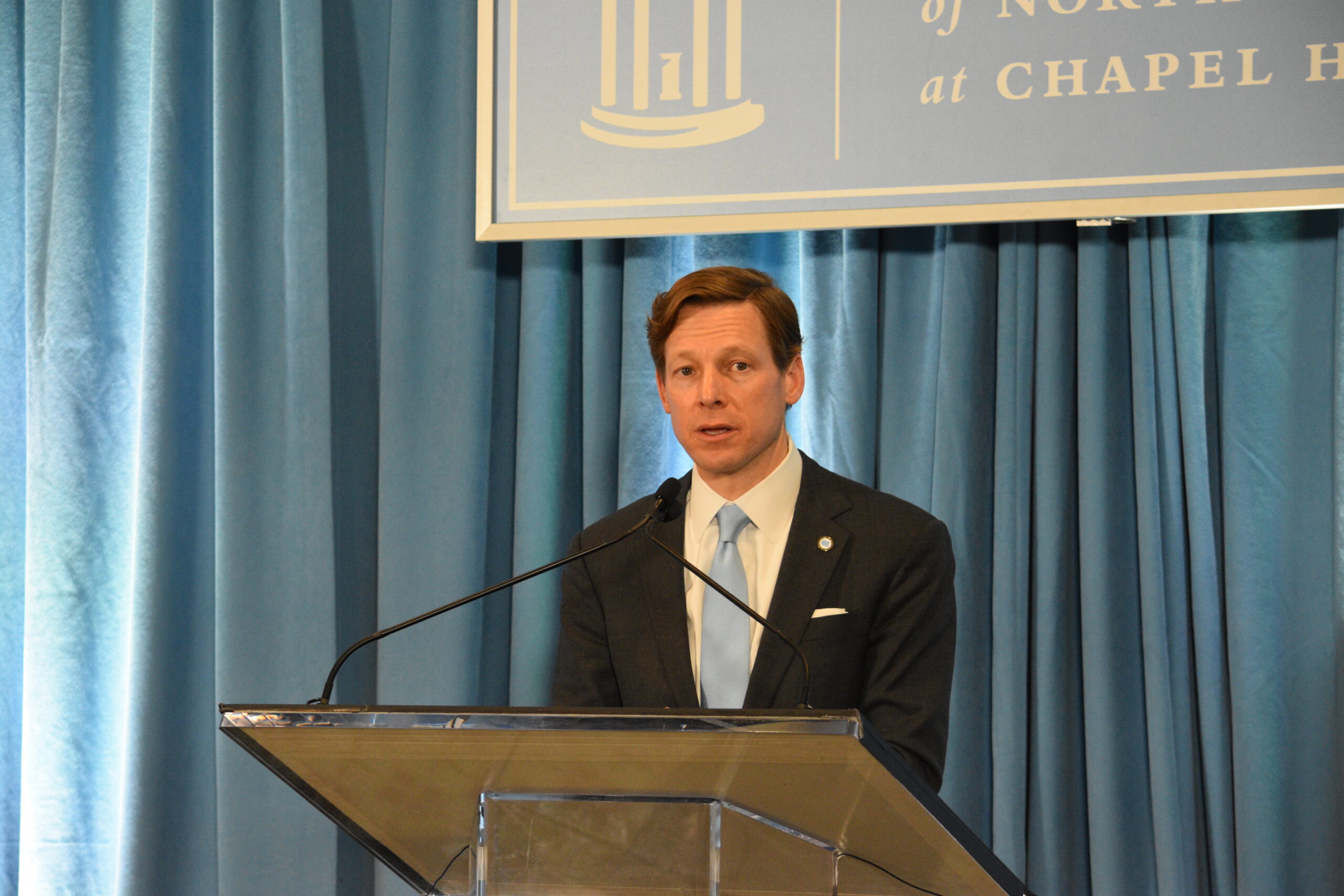
UNC Interim Chancellor Lee Roberts speaks with the media following a Board of Trustees meeting on January 18, 2024.
One of the more defining moments of 2024 for UNC community members and beyond happened a few days into the new year – and a few miles east of campus. During the early morning of January 21, UNC sophomore Mary Rotunda died in a high-speed crash involving other Tar Heel students. Further investigation led to several underage drinking charges and a pair of Chapel Hill businesses – Might As Well and Still Life – being looked into by Alcohol and Law Enforcement. Many court procedures for the involved students are still ahead, as are the final reports from ALE regarding the two bars.
There have been several uplifting and advancing moments for UNC in the last academic year as well. The university capped off redevelopment of its School of Medicine in September, and formally opened a business incubation space in downtown Chapel Hill later that month. Construction on its business school expansion continues, and UNC Hospitals on campus finished its new surgery tower. Carolina Athletics saw another national title added to its trophy case thanks to UNC field hockey and nearly all of its major programs had winning records while reaching the postseason. World-class research has continued across campus, and more than 6,700 students will celebrate graduation on Saturday night.
But the academic year did end with tumultuous scenes. The tensions first seen in October and November over the Israel-Hamas war morphed into protests and advocacy in recent weeks – culminating with an encampment protest on Polk Place by pro-Palestinian demonstrators. Led by student activists, the group is asking the university to divest from any companies with financial ties to Israel. Over violation of its policies, including having tents on the quad and entering buildings overnight, UNC arrested some of the protesters for trespassing and cleared the encampment on April 30. A response rally led to a clash between demonstrators and police when some of the group removed the American flag and put up a Palestinian one at Polk Place — which ended when UNC suspended non-mandatory campus operations for the rest of the day. Since then, the university has erected protection fences around the flagpole and reportedly suspended some of the involved students, while the organizing group continues to protest.
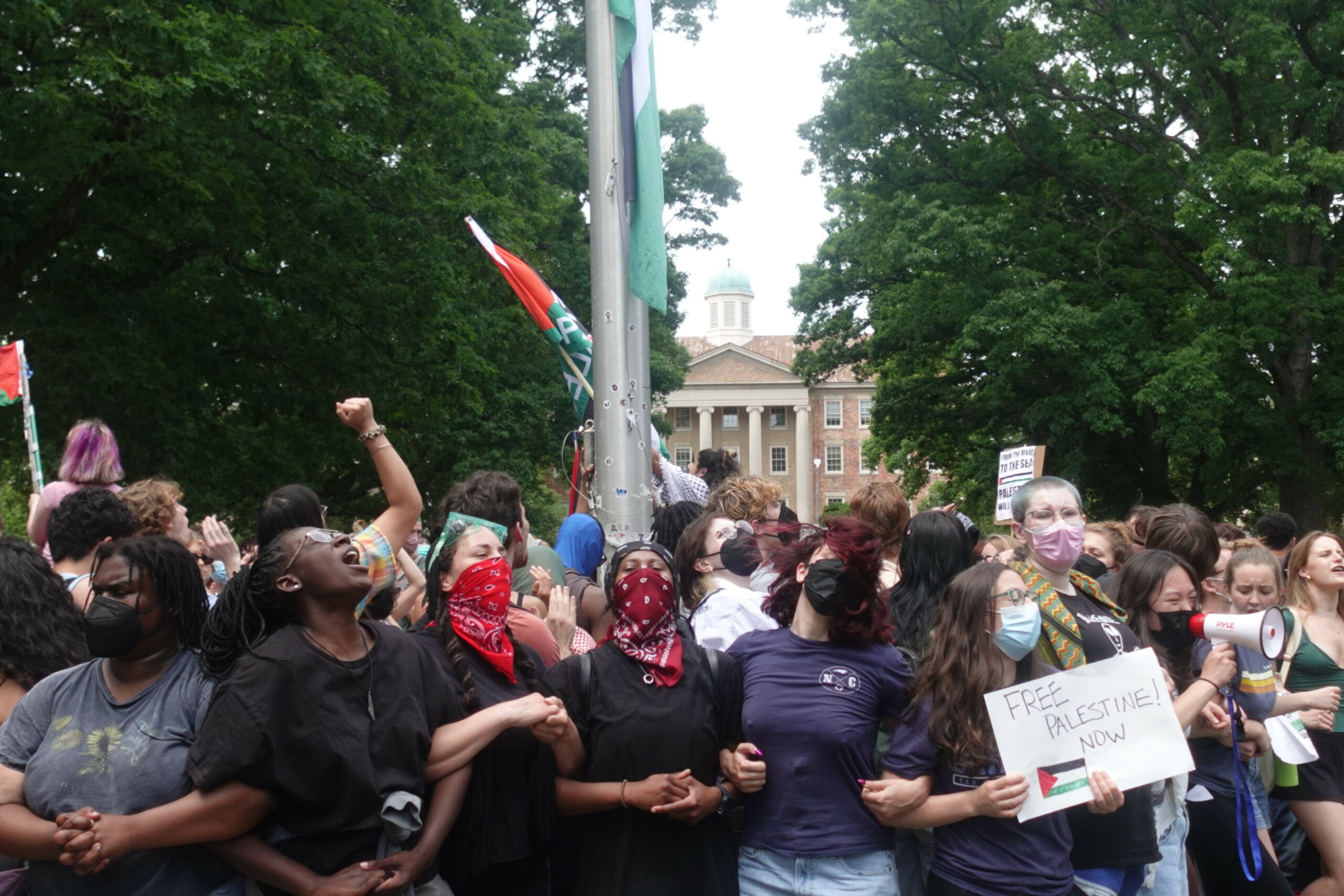
Pro-Palestine demonstrators lock arms around the flagpole after replacing the U.S. flag with a Palestinian flag on the afternoon of Tuesday, April 30. (Photo via Rafael Linhares.)
Looking ahead, the 2024-25 academic year will similarly hold key moments for the university. UNC System leaders will hold a vote in the coming days about the use, funding, and language of diversity, equity and inclusion programs. A permanent chancellor will be named. Roberts has said he hopes to prioritize addressing infrastructure needs, artificial intelligence’s emerging challenges and opportunities, and more during his time in charge. And the Class of 2028 will arrive on campus – facing its own unique set of circumstances as they join the Carolina community.
Chapelboro.com does not charge subscription fees, and you can directly support our efforts in local journalism here. Want more of what you see on Chapelboro? Let us bring free local news and community information to you by signing up for our newsletter.

